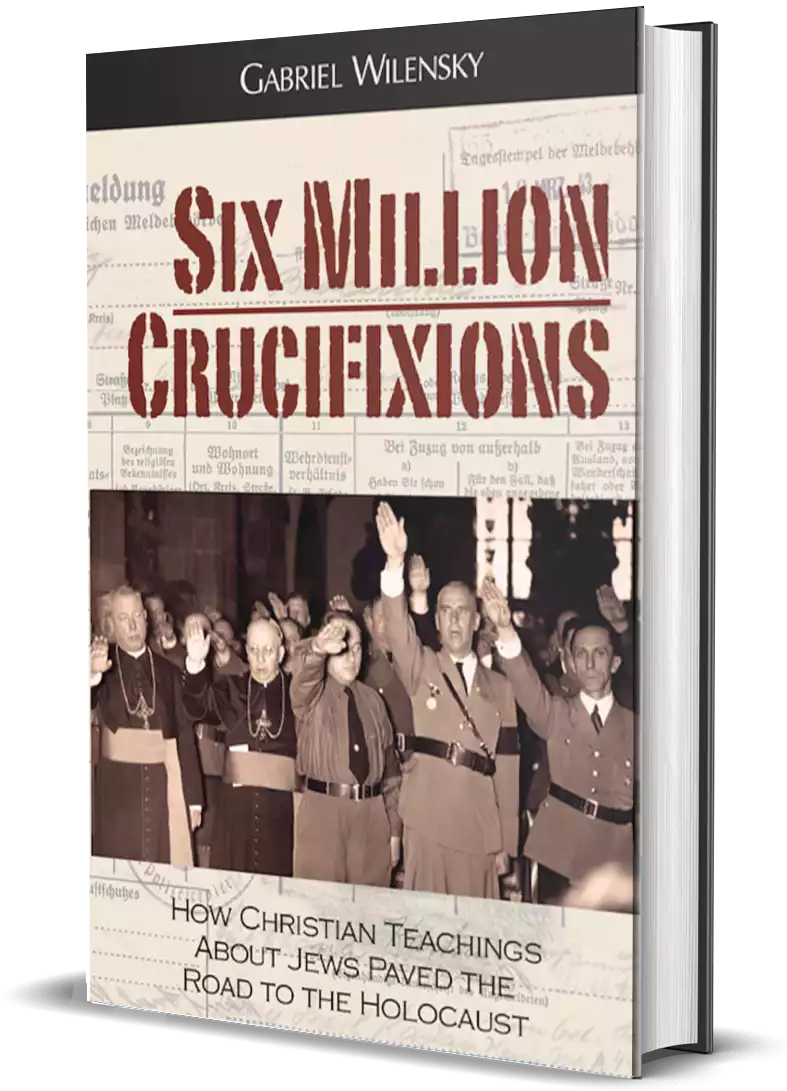Seeing Pope Pius XII in a Different Light: From Saint to Villain?
During WWII and in subsequent years, all the way to his death in 1958, Pope Pius XII was praised for his compassion and work to save Jews during the Holocaust. Many Jewish leaders praised him publicly. Many newspapers wrote laudatory articles. Then, after the play “The Deputy” was published in 1963, things changed. The pope all of a sudden turned into something else; some even say a moral coward. What changed? Did someone find some incriminating evidence against the Pope, something that painted him in a seriously bad light?
It seems indisputable that human beings need an authority figure, someone to admire, to revere, and even worship. During a time of war, and particularly when information was not so readily available, one should not be too surprised if a newspaper wrote a laudatory article about the Pope. What else was the New York Times expected to do? But we need to ask, who wrote those articles? Were they Catholic reporters? Back then, at a time of war and cataclysmic social and economic upheaval, it was not like today, when it’s acceptable to make open criticism.
“I fear that history will reproach the Holy See with having practiced a policy of selfish convenience and not much else.”
Cardinal Tisserant
The reality is that there was no new damning evidence against Pope Pius XII after 1963. But a number of things changed: first, the war was over. In a time of war, people rarely make serious criticism of a world leader, even if they feel the leader’s behavior was lacking, unless of course the leader is the enemy. Second, the Pope was dead. A pope, as opposed to a secular authority, is revered by hundreds of millions of people who would not dare to criticize him as they believe the pope to be holy, and is typically respected by millions more outside the faith who typically refrained from criticism, if anything out of respect (or fear) of the millions who did revere the pope. Pius’ death may have made it easier for critics such as Rolf Hochhuth, the author of The Deputy and others to finally speak up. Third, Pope Paul VI was truly antagonizing many people at that time, and those who felt some modicum of respect for the Church and/or the papacy may have felt it was too much and it was time to speak up. Fourth, all those Israelis and Jews generally who publicly thanked Pope Pius, many of them with the political intent of currying Catholic favor for the Jews and Israel (which was vital at the end of the war and in the first decades of the State of Israel when it needed all the support it could get), may have began to change their minds regarding their attitude toward the wartime pope as they realized their public acknowledgment was not paying off as the Vatican continued to shamefully refuse to recognize Israel. Fifth, religion generally began to lose adherents during the hippy and subsequent years, when issues like contraception, abortion, free love, etc. were becoming more important to a growing swath of the population, who increasingly felt the Church was out of touch with them and reality. Sixth, many historians began to move past platitudes and individual testimonies, some of which may have been questionable in any case, and began scrutinizing the public record of the papacy during the war, and the churches generally before, during and after the Holocaust. The record was dismal. No one should be surprised at the stream of scholarly works excoriating the Pope’s moral cowardice or the behavior of the churches during the war. Seventh, the immediate postwar period was a time in which the Holocaust was rarely discussed, and that included the role any world leader may have played in it. And eight, as society becomes more open, and as the power of the Church to silence dissidents continues to diminish, one should not be surprised that more people are willing to criticize the Church. One can only imagine what they would have said about the Church during the Middle Ages if the Church had not had such overwhelming power to crush (sometimes literally) opponents.
I am not surprised to see that many Catholic faithful, and particularly members of the clergy, are saying that they acted under instruction of Pope Pius to save Jews during the war. What else would they say? Really. Especially if this testimony was recorded after Hochhuth and subsequent criticism of the Pope, what can we expect this people would say? Of course they would come to the Pope’s defense and say the Pope instructed them to save Jews. The Catholic Church is not exactly a paragon of free speech, or an organization that promotes freethinking, or that tolerates dissent or criticism from within. This is the reason why publicly you would hear this laudatory testimony, but privately the same cleric may say something different. For instance, Archbishop Angelo Roncalli (later Pope John XXIII) publicly declared that his work to save Jews was done under instruction of the Pope, however, as Chaim Barlas (an emissary of the Jewish Agency in Palestine sent to Europe to save Jews in the 1940s and who worked with Roncalli toward that end) wrote in his memoirs, Roncalli had told him privately that he was filled with resentment toward his superiors, “whose power and influence are great, but who refrain from action and resourcefulness in extending concrete help.” In France, Cardinal Tisserant also felt anger toward his superiors. He wrote privately to the Archbishop of Paris Cardinal Suhard, that “our superiors do not want to understand the real nature of this conflict.” Tisserant had futilely pleaded with Pius XII to issue an encyclical clearly stating that Catholic individuals had an obligation to follow the dictates of their conscience rather than blindly executing all orders, no matter how powerful the source. He added in that letter, “I fear that history will reproach the Holy See with having practiced a policy of selfish convenience and not much else.” So, these men saw that criticism would come, and for good reason. They would not be surprised at anything that happened after Hochhuth, and neither should anyone else.
Many of those people whose testimony is being recorded by papal apologist organizations may have not remembered whether the pope specifically told them to save Jews or not, but logically assumed (but tragically, probably not really) that the Pope did that. After all, that was the charitable thing to do, and one would expect that and more of the pope. So many may have added color to their recollections because of that. Don’t underestimate the allegiance to someone the faithful calls “Holy Father” and “Vicar of Christ”, and who do not consider these figures of speech. But even if, for the sake of argument, the Pope had in fact instructed all clergy to help hounded Jews, everywhere and in any way possible—which I don’t think he did—one must question why such an order was so widely ignored, as the evidence of members of the clergy helping Jews is meager (to put it charitably), and the results of any such action in any case, assuming it was taken, was so pathetically ineffective. There’s no need to point out that of a few Jews may have found refuge here and there. Six million died at the hands of Christians, and even if a few thousand helped a few thousand survive, many millions did not.

Grab Your Copy Today!
Six Million Crucifixions
Traces the history of antisemitism in Christianity and the role that played in making possible the Holocaust.
Want to stay informed about the topic?
Subscribe below.

